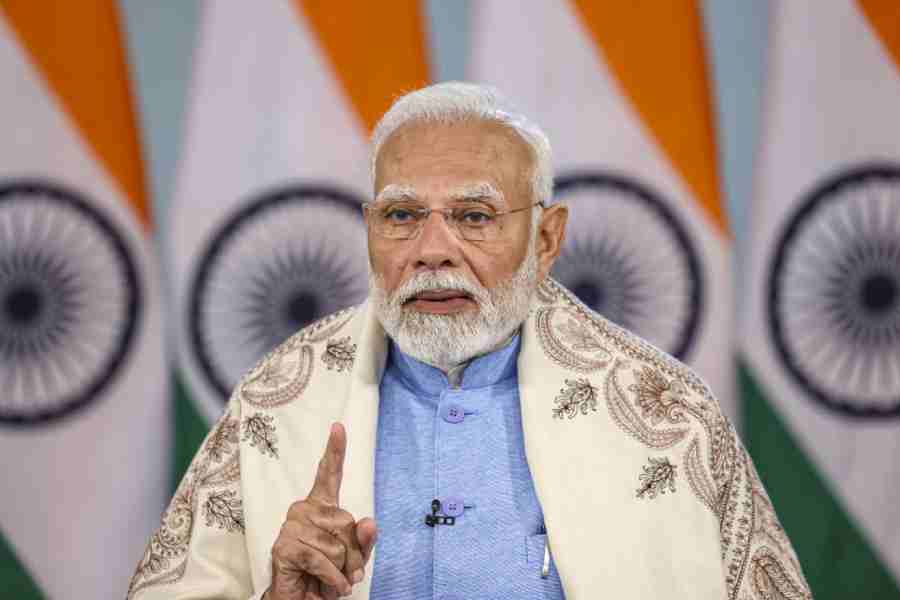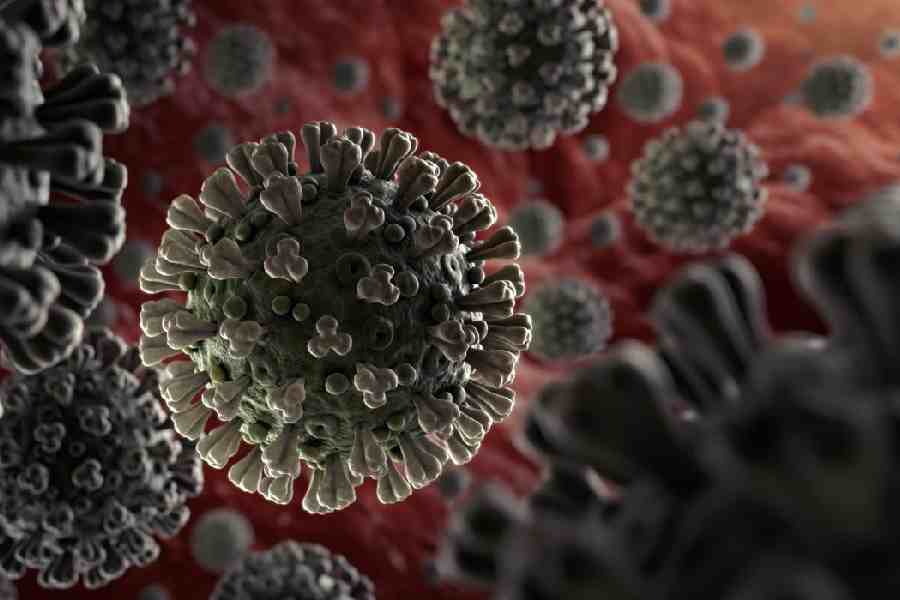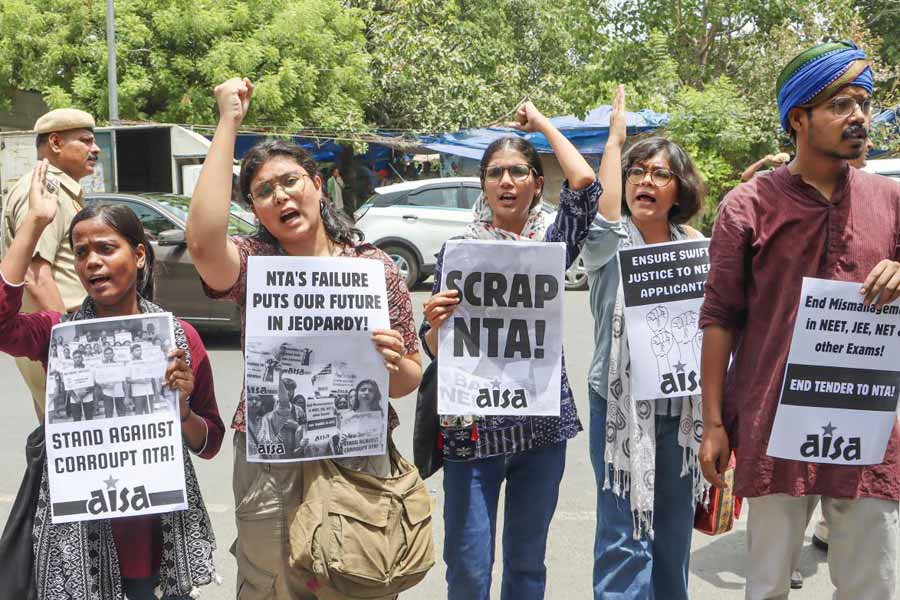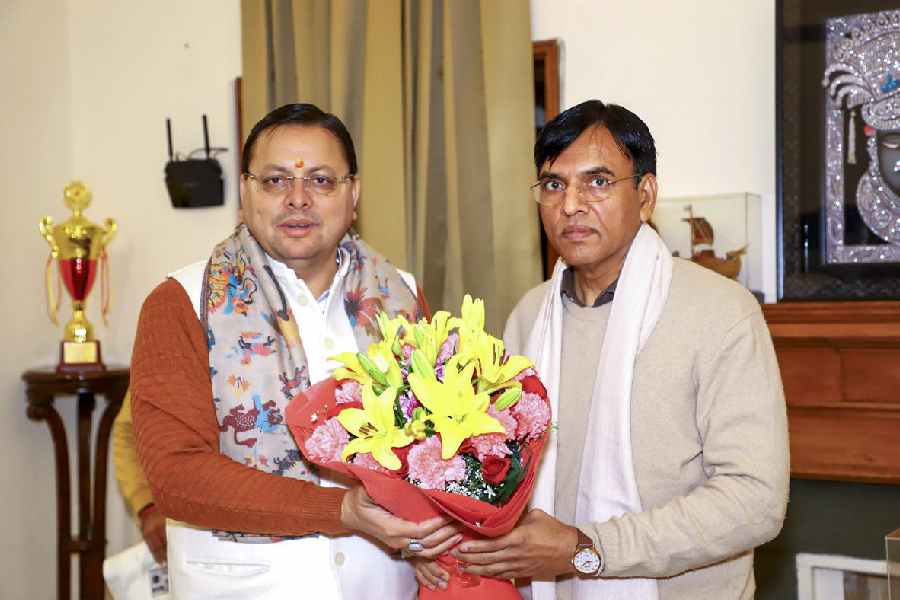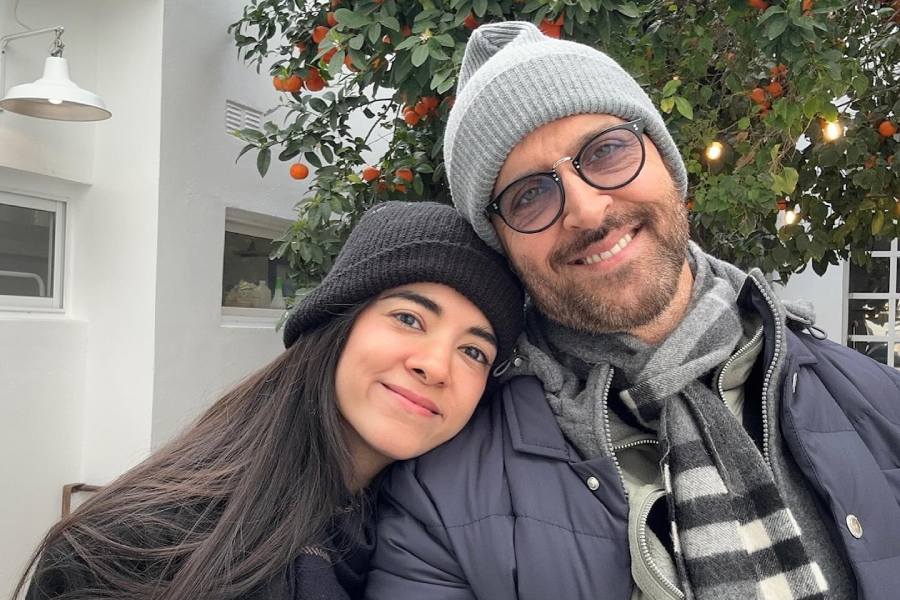Call it the Descent to Man. Narendra Modi is back being biological.
Making his podcast debut on Friday, the Prime Minister said he could make mistakes because he was “human” and “not God”.
This after being widely perceived as suggesting, around the time of the general election, that he was a non-biological being — a messiah sent by God.
“Galatiyan hoti hai, manusya hoon, main koi devta thode hi hoon (Mistakes happen, I’m human and not God),” Modi told Nikhil Kamath, co-founder of the financial services platform Zerodha, in the podcast.
“Manusya hoon toh galatiyan hoti hain, par jaan bujhkar galati nahi karoonga (Since I am human, mistakes do happen, but never intentionally),” he added, appearing to stress the word “manusya” (human).
Last summer, Modi had seemed to strike a different note while speaking about himself.
“When my mother was alive, I used to believe that I was born biologically. After she passed away, upon reflecting on all my experiences, I was convinced that God had sent me,” he had said in an interview.
“This energy could not be from my biological body, but was bestowed upon me
by God.”
Congress communications chief Jairam Ramesh, who has been referring to Modi as the “non-biological PM”, rushed to target him after his latest remarks.
“This from a man who proclaimed his non-biological status just eight months back. This is damage control,” Ramesh said in an X post, attaching videos of Modi speaking then and now.
In another post, Ramesh sought to link Modi’s realisation about being human to the flight of foreign investors from the country’s stock markets.
“While the non-biological PM is rediscovering that he is a human after all, foreign investors in our stock markets have ushered in 2025 by taking out $2 billion just in the past six days,” he said.
Modi’s remarks about being “human” came while he was talking about his days as chief minister of Gujarat. He said he had made three promises after becoming chief minister.
“One, I will leave no stone unturned in my efforts. Two, I will not do anything for myself and third, that I am a human and so can make mistakes but will not do so with bad intentions,” he said.
During the two-hour podcast, Modi was asked no questions on controversial subjects like the Gujarat riots or on pressing issues such as the struggling economy, sliding rupee or widespread joblessness. Instead, he faced adulatory questions on subjects like his early years, education, and the way he managed stress.
Asked about the qualities a politician needs to succeed, Modi provided a long answer underlining the ability to connect with people. He cited the example of Mahatma Gandhi, although some of his praise for the Father of the Nation seemed somewhat qualified.
“Mahatma Gandhi carried a stick taller than himself but he advocated non-violence. That was a huge contrast. But he used to communicate well,” the Prime Minister said.
“Mahatma Gandhi never wore a cap but everyone else wore the Gandhi cap. He may not have been a good orator, but his personality and connection with the people brought the nation together.”
Asked whether it was a politician’s ideology that earned them supporters or whether it was society’s ideology that politicians copied, Modi said that “idealism is far more important than ideology”.
“I am not saying politics can exist without ideology but idealism is very important,” he said, asserting that Gandhi and Savarkar had different ideologies but “the same idealism: freedom”.
Speaking of his childhood days, Modi said he was allowed to go to the village pond because he washed the clothes of the entire family.
He said he was an average student but added that one of his teachers had told his father that he was a talented boy.
Modi said he had received a courtesy call from Chinese President Xi Jingping after becoming Prime Minister in 2014. “President Xi told me there was a special relationship between us (Xi and Modi),” he said.
Xi told him that the seventh-century Chinese traveller Hiuen Tsang (or Xuanzang) had stayed in Modi’s village of Vadnagar in Gujarat during his India tour before returning to China and putting up in Xi’s village, he said.
“I asked, ‘What is it?’ He (Xi) said, ‘Hiuen Tsang stayed in your village for the longest time. But when he returned to China he stayed in my village’,” Modi said.
He did not go into the present relationship with China, which is accused of occupying at least 1,000sqkm of Indian territory in Ladakh since May 2020, nor was he asked about it.
Drug syndicates
Union home minister Amit Shah on Friday called for "ruthless action" against drug smuggling syndicates and flagged how the entire narcotics business has emerged as a serious threat to the security of the country, sources said.
Shah chaired a regional conference on drug trafficking and national security in Delhi.
The conference, organised by the Narcotics Control Bureau, was aimed at addressing the growing concern of drug trafficking and its impact on national security, with a special focus on eight states and Union Territories of northern India.
Governors, lieutenant governors, chief ministers and senior officers from the eight participating states and Union Territories, and senior officers from law enforcement agencies attended the conference.
During the drug disposal fortnight starting on January 11, a total of 44,792kg of seized narcotics having an international market value of ₹2,411 crore will be disposed of, the home ministry said.

